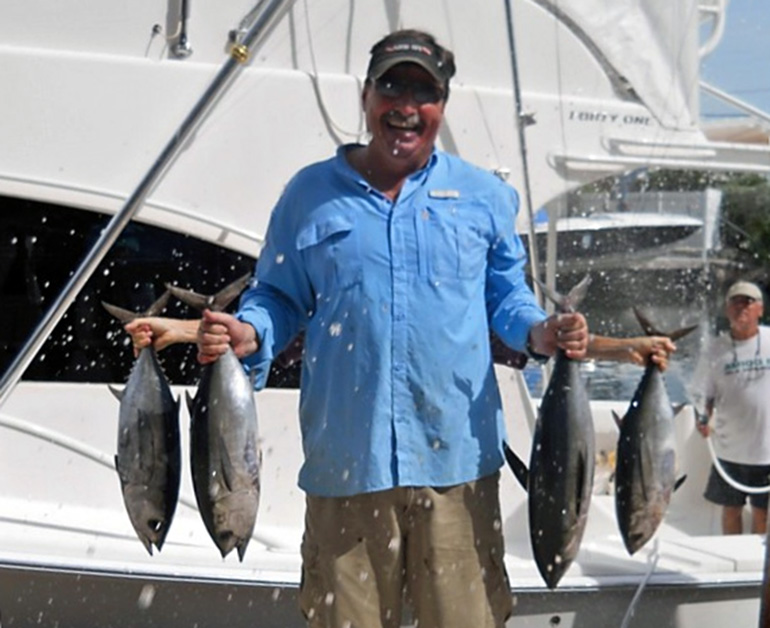October 03, 2019
By Florida Sportsman Editor
Blackfin tuna, a popular, hard-fighting fish of Florida's offshore edges and reefs, will now be protected by a bag limit of two fish per person or 10 per vessel, whichever is greater.

The Florida Fish and Wildlife Conservation Commission (FWC) recently approved the change at its October meeting in Cape Canaveral. The bag limit will go into effect Jan. 1, 2020 and will extend into federal waters.
Blackfins to this point have been essentially unregulated—unlike the larger, commercially marketed yellowfin, bluefin and big-eye, which are all subject to size and bag limits. A Highly Migratory Species (HMS) permit is required of anglers seeking to land most of the tuna species, but blackfin has been, and remains, an exception. No special permit required, other than a state saltwater fishing license. In drafting the blackfin bag limit, the FWC held numerous public hearings in spring of 2019, gathering input from anglers along the coasts.
Also at the Canaveral FWC meeting, the commission discussed the future of fisheries management in Biscayne National Park. The Commission moved forward with a proposal that will be used to gather additional public feedback before being brought back for a draft rule hearing at the December meeting in Panama City Beach.
An additional round of public workshops will be held on this topic Oct. 28, 29 and 30 in South Florida. For updates on dates and locations, visit MyFWC.com/SaltwaterComments and click on “Workshops.”
Potential draft rules discussed at the meeting today included:
· Increasing the minimum size limit for certain targeted finfish within Biscayne National Park.
· Establishing a 20-fish aggregate recreational bag limit for select commonly targeted food and sport fish harvested or possessed inside the park.
· Establishing Coral Reef Protection Areas inside Biscayne National Park where traps and lobstering would be prohibited year-round.
· Establishing inshore and offshore no-trawl zones within the park.
· Prohibiting the use of air-providing equipment while spearfishing in Biscayne National Park.
· Establishing a trap-free zone near Biscayne National Park headquarters.
Staff will gather additional feedback on these proposals online and at the upcoming public workshops and will bring a draft rule package to the December Commission meeting in Panama City Beach.
The Commission is not pursuing other potential changes that were mentioned previously such as additional limitations on spearfishing, bag limit reductions for blue and stone crab harvest, elimination of spiny lobster mini-season in this area, and a baitfish aggregate bag limit. To
provide online comments on items related to Biscayne National Park, visit
MyFWC.com/SaltwaterComments.
